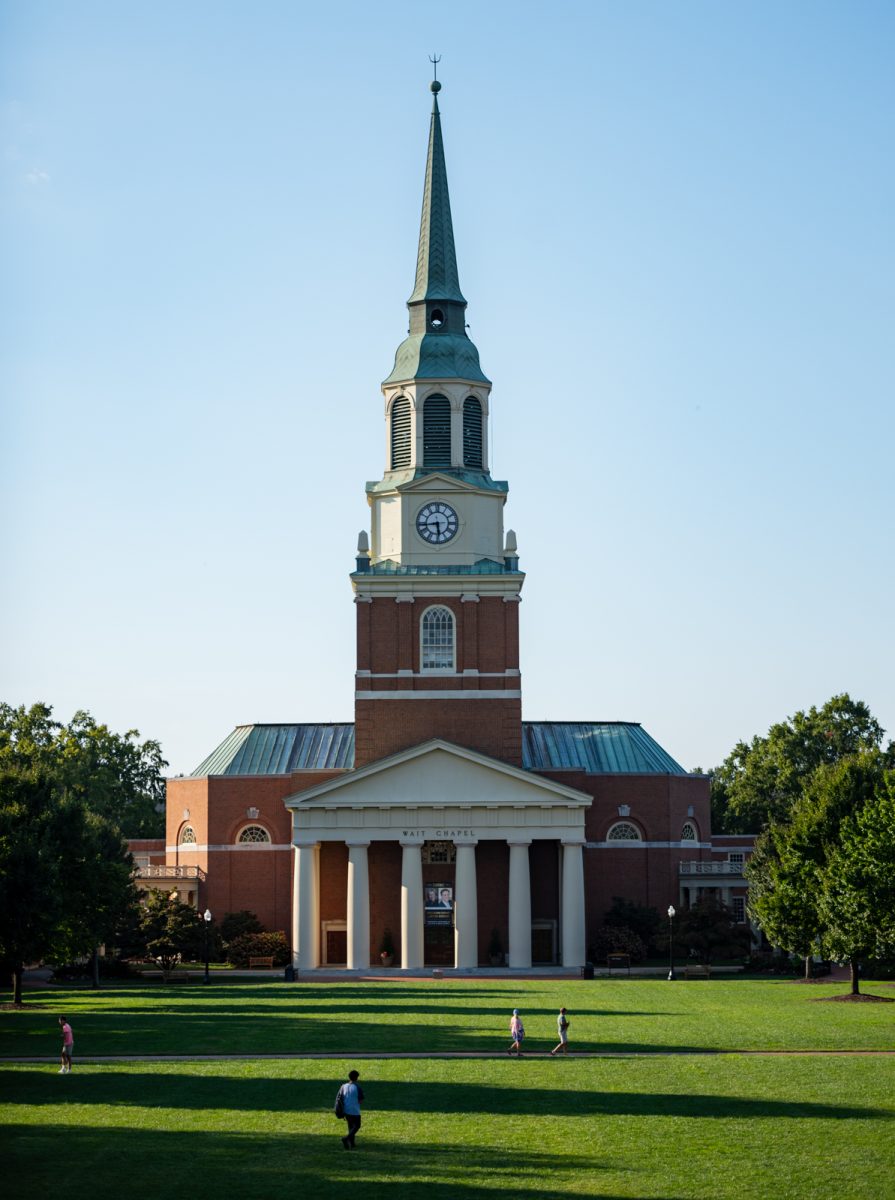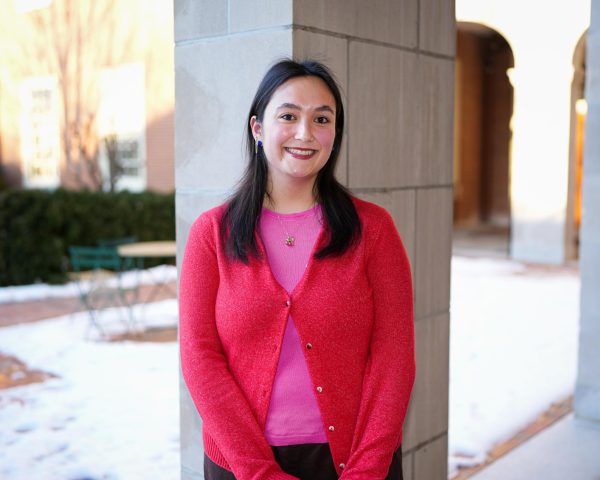Wake Forest students, staff and faculty gathered at Wait Chapel on Aug. 23 for Convocation, where new students were welcomed to the Wake Forest community and encouraged to practice empathy throughout their next four years on campus.
New students heard from a range of speakers, including President Susan Wente, Provost Michelle Gilespie, Student Body President Hannah Elluru, Vice President for Campus Life Shea Kidd Brown, Dean of the College and Graduate School Jackie Krasas and new University Chaplain Chris Donald, who began his new role on Aug. 12.
Those who presented at Convocation spoke about class unity, freedom of expression and embracing the role of a student. Following administrators’ remarks, new students participated in a pinning ceremony, where they declared themselves full Wake Forest community members and put on their Wake Forest pins.
During his opening remarks, University Chaplain Chris Donald presented an invocation and asked students to take a collective deep breath in and out. President Susan R. Wente then welcomed the class of 2028 to Wait Chapel, and remarked that convocation was one of two events where the entire class would be fully united, and that the next time would be in four years during graduation.
Wente reminded the class that the university’s motto, Pro Humanitate, comes to life in small moments, such as saying good morning to a stranger you walk past or holding the door open for someone.
“The small things are the big things,” Wente said. “So when you hear Pro Humanitate, which you’re going to hear a lot, and you probably have heard a lot over these coming days and weeks and years, remember this secret: you have the power each day to make our community better, stronger and more open to all.”
Wente emphasized the importance of empathy, particularly through the upcoming presidential election, when many students will be voting for the first time. She then left students with an assignment: to practice empathy.
Freshman Joely Weaver said she was pleasantly surprised by President Wente’s dedication to students.
“Sometimes when you think of presidents of college you think of them being very stern,” Weaver said. “… But as soon as you heard her voice, I instantly felt happy to be there. She definitely does a good job of being down to earth.”
Following a broadcasted video stating the university’s commitment to prioritizing community members’ freedom of expression, Provost Michele Gillespie and Student Body President Hannah Elluru held a conversation where Elluru explained how vital student connections are to freedom of expression on campus.
“A challenge … is the fear of alienation or isolation, or [thinking] ‘I don’t know if these people think the same things as me’ or ‘what if I say something that rubs someone the wrong way,’” said Elluru. “That’s also real, and it’s hard to navigate that, especially when you’re coming to a new environment where you don’t know everybody and everybody’s coming from different places.”
She continued: “I think that’s a real challenge that people may face on campus, and that’s where friendships and connections can really help with those challenges. They can give you the strength to listen well and to express your thoughts.”
Following this discussion, Kidd Brown and Krasas each delivered remarks, emphasizing curiosity, discovery and frequently asking questions.
“How can we call one another in instead of calling each other out? How can we feel with people — [which] is empathy, as you heard earlier? How can we disagree without dehumanizing?” said Kidd Brown. “In other words, how can we show Humanitate?”
Freshman Aiden Harrand said she felt the university’s dedication to Pro Humanitate.
“There definitely is a strong sense of community, which is what I wanted when I was choosing a school,” said Harrand. “Even just watching this, I can grasp the strong community here.”














